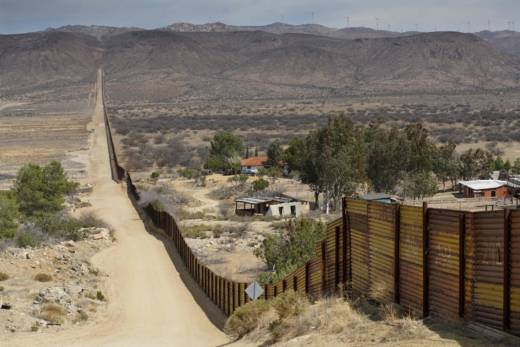Brown released a proposed agreement with the federal government that emphasizes the widely shared understanding of the Guard's limited role but explicitly bans any support of immigration enforcement. It says troops cannot guard anyone in custody for immigration violations or participate in construction of border barriers.
The White House also praised Brown's decision without addressing his comments on immigration enforcement.
"We're also glad to see California Gov. Jerry Brown work with the administration and send members of the National Guard to help secure the southern border," White House Press Secretary Sarah Huckabee Sanders said.
Reaction in California was limited, with few of Brown's allies or opponents weighing in.
State Sen. Kevin de Leon, a Democratic U.S. Senate candidate and author of California's so-called sanctuary state law, said Guard deployment was unnecessary and not a good use of resources. But he said more can be done to combat border crime and that he appreciated Brown's design of "a clear and limited mission focused on real public safety threats."
"I am confident Governor Brown will not use our National Guard to harass or tear apart immigrant families in California," he said in a statement.
Rob Stutzman, who advised former Republican Gov. Arnold Schwarzenegger, praised the decision on Twitter, calling Brown's decision to accept money for using the Guard to fight drugs and human trafficking "good government."
Immigration advocacy groups were critical, saying Brown's support was a boost for Trump's agenda. Lillian Serrano, chair of the San Diego Immigrant Rights Consortium, acknowledged the governor's proposed limits on the Guard's role but said his decision reflected "flawed logic that we need more boots on the ground."
Pedro Rios, director for the American Friends Service Committee's U.S.-Mexico border program in San Diego, questioned why Brown would send troops while rejecting Trump's premise that they are needed to help stop illegal immigration.
"If he's in disagreement with Donald Trump about the justifications for having the National Guard on the border, then why would he accept it?" he said.
Unlike Republican governors in other border states, Brown disagreed with Trump's portrayal of a border spiraling out of control, noting that Border Patrol arrests fell to the lowest level last year since 1971 and that California accounted for only 15 percent of the agency's arrests on the Mexican border.
"Here are the facts: there is no massive wave of migrants pouring into California," Brown wrote the Trump Cabinet members.
In contrast, Texas Republican Gov. Greg Abbott, who is contributing 1,000 troops, embraced Trump's mission the day it was announced, saying it would promote the rule of law and "help ensure we are doing everything we can to stem the flow of illegal immigration."
Brown said California's troops would join an existing program to combat transnational drug crime, firearms smuggling and human trafficking. About 250 California National Guard troops are already participating, including 55 at the border.
The new contingent of California Guard members being deployed could be posted at the border, the coast and elsewhere statewide, Brown said.
California deployed troops to the border under former Presidents George W. Bush in 2006 and Barack Obama in 2010.
